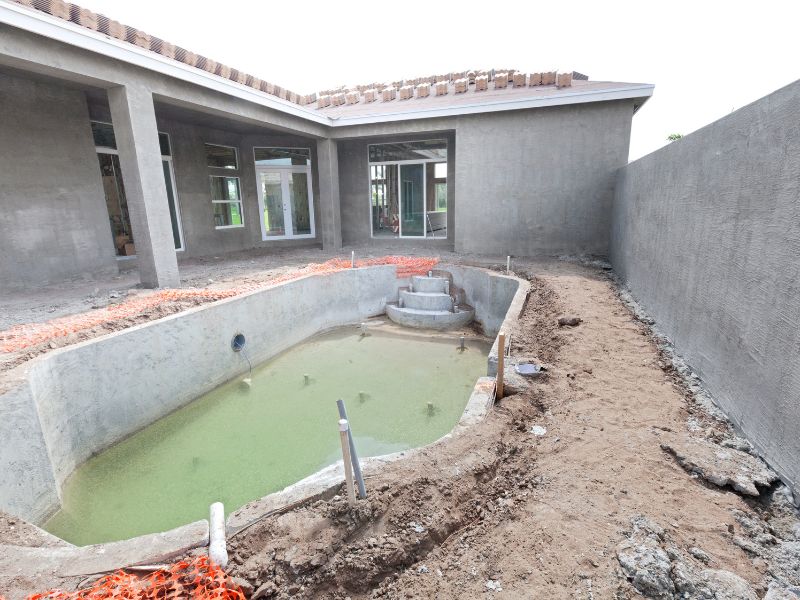 Creating a backyard oasis with a swimming pool, hot tub, or water feature can transform your outdoor space into a haven for relaxation and entertainment. However, financing such a project often involves careful planning and consideration. One popular financial option for these endeavors is a construction loan.
Creating a backyard oasis with a swimming pool, hot tub, or water feature can transform your outdoor space into a haven for relaxation and entertainment. However, financing such a project often involves careful planning and consideration. One popular financial option for these endeavors is a construction loan.
Understanding Construction Loans
Construction loans are specialized financing options designed to fund the building or renovation of properties. They differ from traditional home loans in that they provide funds in stages, often referred to as “draws,” as the project progresses. These loans typically have variable interest rates and shorter terms compared to standard mortgages.
Financing Pool and Spa Installations
When it comes to installing swimming pools, hot tubs, or other water features, construction loans offer a flexible solution. Here’s a breakdown of how these loans can be utilized:
1. Single-Close Loans: These loans are particularly useful for financing the entire project, from excavation to completion. They cover the cost of both the home and the pool or spa installation. Single-close loans simplify the process by combining the financing for the home and the outdoor amenities into a single loan.
2. Home Equity Loans or Lines of Credit: If you already have equity in your home, you might consider leveraging it to fund your pool or spa installation. Home equity loans or lines of credit allow you to borrow against the value of your home, making it a viable option for financing home improvement projects.
3. Construction-to-Permanent Loans: These loans start as construction loans and then convert into traditional mortgage loans once the project is complete. This option can be beneficial if you’re planning a larger project that includes significant landscaping, such as multiple water features or extensive outdoor renovations.
Things to Consider
Before opting for a construction loan to finance your pool or spa installation, consider the following:
1. Credit and Eligibility: Lenders typically assess creditworthiness and eligibility criteria before approving a construction loan. Ensure your credit score and financial standing meet the lender’s requirements.
2. Costs and Budgeting: Factor in not just the cost of the pool or spa installation but also additional expenses like landscaping, decking, or ongoing maintenance. Create a comprehensive budget to understand the full scope of the project.
3. Interest Rates and Terms: Construction loans often come with variable interest rates and shorter terms. Be prepared for fluctuations in interest rates and ensure you’re comfortable with the repayment schedule.
Installing a swimming pool, hot tub, or water feature in your backyard can significantly enhance your home’s value and your quality of life. Financing these projects through construction loans provides a practical and structured way to fund your dream outdoor oasis.
Before embarking on this journey, it’s wise to research various lenders, understand the terms and conditions of the loan, and carefully assess your financial capability to undertake and repay the loan. A well-thought-out plan will not only ensure a smooth financing process but also help you create the backyard paradise you’ve always envisioned.
 Many millennials are reaching the age where they are thinking about buying homes for the first time. It turns out that many members of this generation are finding this process challenging. Even though the housing market is great for those looking to buy, surveys indicate that this generation also finds the process overwhelming.
Many millennials are reaching the age where they are thinking about buying homes for the first time. It turns out that many members of this generation are finding this process challenging. Even though the housing market is great for those looking to buy, surveys indicate that this generation also finds the process overwhelming.